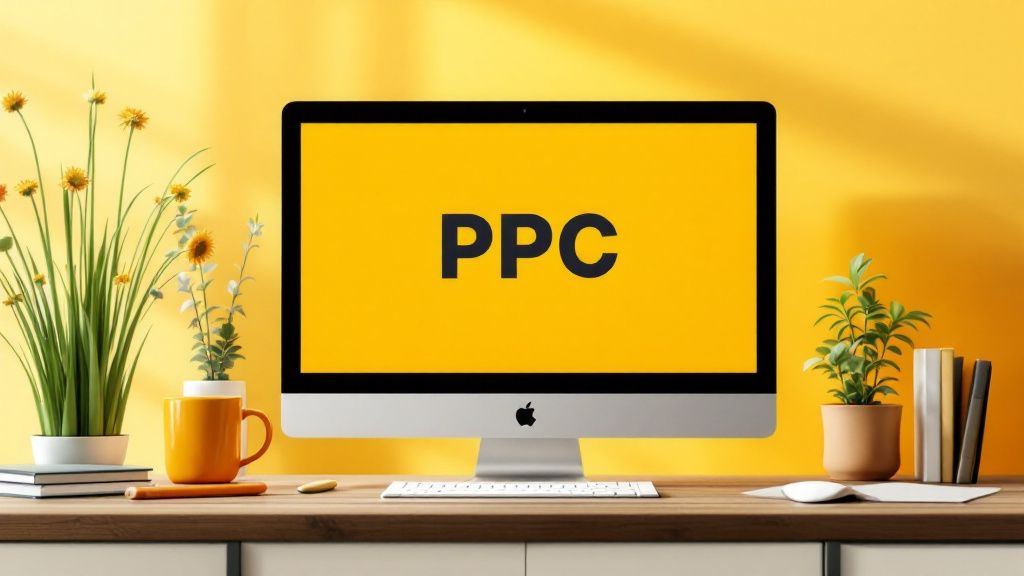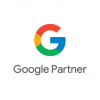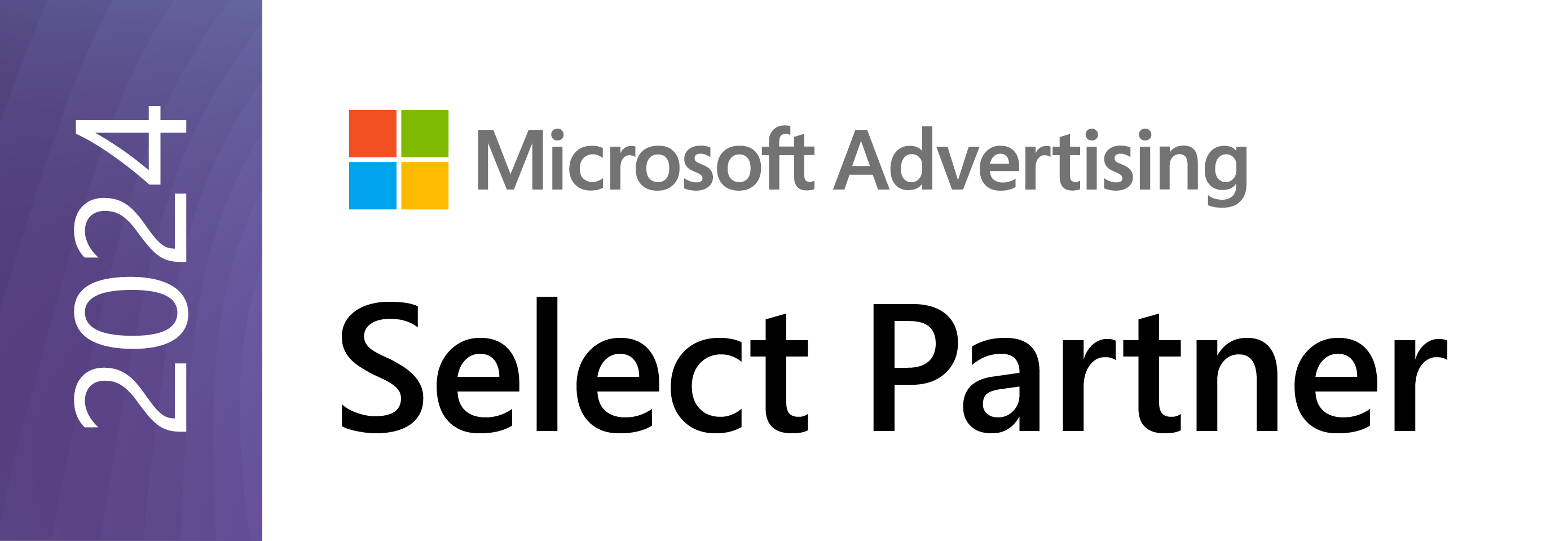
Mastering Your Business Goals with PPC Advertising
In today’s dynamic digital landscape, mastering your business objectives is crucial, and pay per click advertising emerges as a powerful tool in this pursuit. By implementing effective PPC services, you can strategically direct traffic to your site, capturing potential clients who are already searching for what you offer. The allure of PPC management lies in its precision, allowing you to target specific demographics, times, and locations for optimal engagement. With expert oversight, your campaigns are continuously refined to ensure you achieve maximum return on investment. Embracing PPC advertising is not just about clicks—it’s about converting those interactions into tangible business success.

Understanding PPC Advertising
Understanding PPC advertising is an essential step for grasping how it can propel your business toward success. Originating in the late 1990s as a revolutionary marketing tool, pay per click advertising has significantly evolved, especially since the introduction of Google AdWords in 2000. This evolution underscores its adaptability and effectiveness, proving invaluable for businesses aiming to reach specific audiences with precision. With PPC advertising, you pay only when someone clicks on your ad, offering a cost-effective way to amplify your brand’s visibility and engagement.
By leveraging professional PPC services, you can optimize ad campaigns based on real-time data, tweaking them to meet evolving market trends and consumer behavior. Skilled PPC management ensures that ads are not only strategically crafted but also meticulously monitored to maximize conversion rates. Whether you aim to increase website traffic, generate leads, or boost sales, understanding the nuances of this advertising form can dramatically impact your marketing outcomes. Through effective PPC strategies, you create opportunities for higher brand exposure and targeted outreach, ultimately driving sustained business growth.

Benefits of PPC Services for Businesses
Utilizing PPC services can significantly enhance your business’s reach and profitability. With the ability to target specific audiences based on detailed criteria, PPC advertising offers an unparalleled level of precision. You can control who sees your ads and when, making it an efficient way to reach potential customers who are most likely to be interested in your products or services.
A major benefit of pay per click advertising is its immediacy. Once your campaigns are active, they start delivering results almost instantly. This efficient turnaround is ideal for businesses looking to quickly boost their online presence. Moreover, PPC management allows for swift adjustments, enabling you to keep pace with marketing trends and consumer behaviors.
One of the most common inquiries regarding PPC services is whether they truly offer measurable results. The answer lies in the robust analytics provided, which track every click, impression, and conversion. By analyzing these metrics, you gain insights into campaign performance and can further refine your strategy for enhanced outcomes.
PPC advertising also offers budgeting flexibility. You can set your budget daily, weekly, or monthly, and adjust it based on the performance metrics you observe. This adaptability ensures that your marketing spend aligns with your business goals, making PPC a cost-effective marketing strategy that can scale with your growth.

Key Elements of a Successful PPC Campaign
A successful PPC campaign hinges on thorough keyword research and selection. Identifying the right keywords ensures that your ads reach the most relevant audience. This precision in targeting allows you to connect with potential customers actively searching for your products or services, thereby enhancing the chances of conversion. Balancing high-traffic keywords with niche-specific ones can optimize your visibility and drive more qualified leads.
Crafting compelling ad copy is another crucial element in PPC services. Your ad must capture attention and convey the value of what you offer concisely. A well-written ad addresses the needs and desires of your target audience, encouraging them to take action. Integrating a strong call-to-action in your PPC advertising can significantly increase click-through rates and, consequently, conversion opportunities.
When considering PPC management, it’s important to compare manual management vs automated tools. While manual management offers personalized control and insight, automated platforms provide efficiency and scale. Each approach has its advantages, but a combination often yields the best results, allowing you to leverage automation for routine tasks while focusing human expertise on strategy refinement. This balanced approach can lead to more successful PPC campaigns tailored specifically to meet your business goals.

Choosing the Right Platforms for PPC Advertising
Selecting the right platforms for PPC advertising is crucial to maximizing your campaign’s reach and effectiveness. Google Ads remains a dominant force, offering vast reach and robust targeting options across search and display networks. However, platforms like Facebook and Instagram provide unique advantages, allowing for visually engaging ads that capitalize on social and demographic targeting, opening new avenues to reach specific audience segments.
Exploring the benefits of LinkedIn for PPC services, particularly for B2B marketers, reveals its capability to target professionals based on industry, job title, and company size. LinkedIn’s specialized audience can enhance your outreach efforts to decision-makers, supporting lead generation campaigns with a focused approach. Consequently, each platform offers distinct advantages that align with various marketing goals.
Looking ahead, PPC platforms are expected to evolve with advancements in AI and machine learning, offering more sophisticated targeting and automation options. Future developments may include enhanced predictive analytics and real-time bidding adjustments driven by AI, further refining PPC management strategies. Staying adaptable and informed about these changes will be key to maintaining competitive campaigns as the landscape of pay per click advertising continues to advance.

Monitoring and Analyzing PPC Performance
Effectively monitoring and analyzing PPC performance is pivotal to achieving successful advertising outcomes. Utilizing tools like Google Analytics and ad-specific dashboards, you can track metrics such as click-through rates, conversion rates, and cost per acquisition. These insights allow you to make data-driven decisions, optimizing your campaigns for better performance. Regular analysis aids in identifying trends and adjusting strategies accordingly to enhance your PPC services’ impact.
Central to PPC management is the ability to adapt your strategy based on performance metrics. Analyzing key performance indicators (KPIs) helps you understand audience behavior and ad efficacy. By identifying underperforming keywords or ads, you can reallocate budget to more successful elements, ensuring efficient use of resources. This approach supports continuous improvement in your pay per click advertising strategies.
Recent studies reveal that the incorporation of machine learning algorithms in PPC platforms significantly improves predictive analytics capabilities. According to these findings, machine learning can track user interactions and preferences, enabling more accurate audience targeting over time. As PPC advertising continues to integrate such advancements, leveraging scientific findings can enhance your campaigns’ effectiveness by maximizing ROI through more precise audience engagement.

Common Mistakes to Avoid in PPC Advertising
A frequent mistake in PPC advertising is neglecting to perform comprehensive keyword research. Without understanding which keywords your target audience uses, you risk attracting irrelevant traffic that doesn’t convert. Ensuring a thoughtful mix of broad and long-tail keywords enhances the precision of your PPC services and aligns your campaigns more closely with user intent, optimizing your ads’ effectiveness.
Another common error is failing to regularly update and test your ad copy. Stagnant ads can lead to reduced engagement and lower click-through rates. By continuously refining your messaging and experimenting with different approaches, you enhance the appeal of your ads. This ensures your PPC management remains dynamic, responsive to user preferences, and effective in maintaining interest and conversions.
The current state of PPC advertising shows an increasing trend toward automated tools that offer predictive analytics. Embracing automation within your PPC strategy can help avoid errors related to manual management, ensuring consistent performance monitoring and real-time adjustments. As these tools evolve, staying abreast of trending technologies and integrating them into your approach can significantly reduce the chance of common pitfalls while improving overall campaign efficiency.



